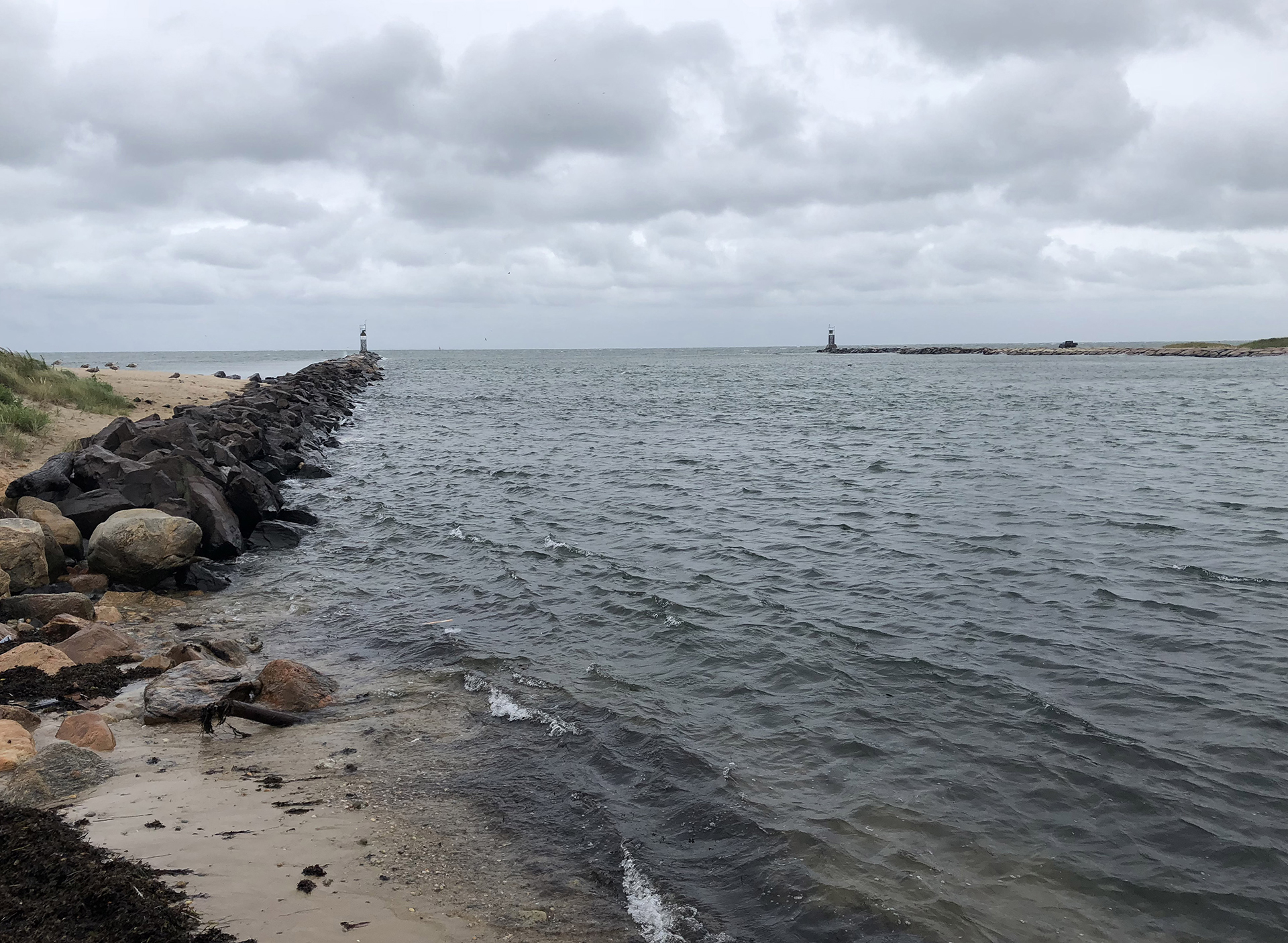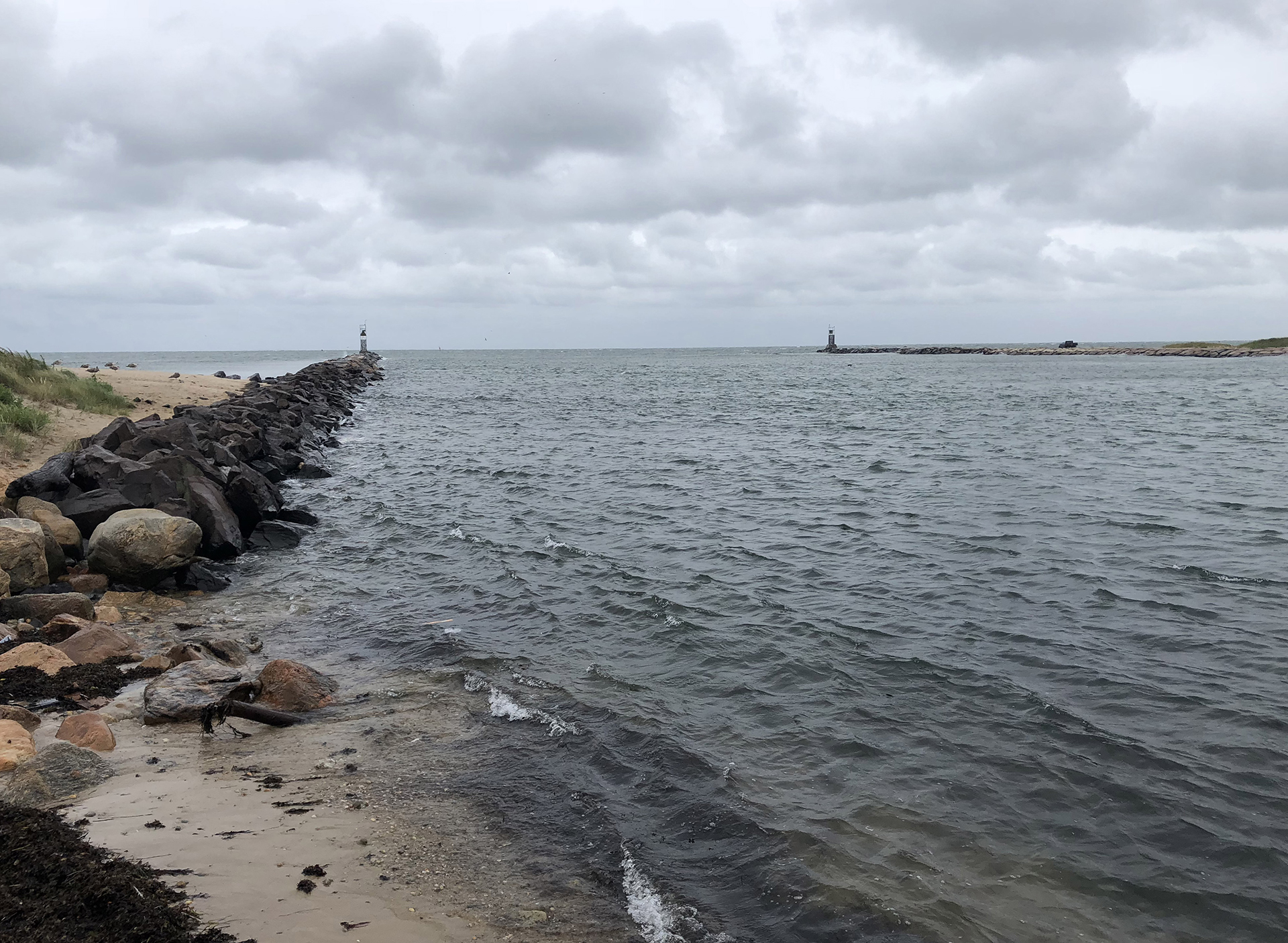Town To Appeal Erosion Lawsuit Verdict


The Town of East Hampton is seeking to reverse a jury verdict rendered in a case in which owners of properties on Soundview Drive and Captain Kidd’s Path charged that erosion on the beaches in front of their houses was caused by the jetties that protect the mouth of Lake Montauk, and that the town was responsible. If the judge who decided the case does not grant the town’s motion, the town is poised to appeal the ruling. At the same time, owners in the Culloden Shores area are gearing up to fight the town, with a goal of raising up to $250,000 to do so.
After six years of the suit making its way through the United States District Court in Central Islip, and after a one-month trial, a jury decided on June 29 that the town was liable for the damage to the beaches since October 2009. The plaintiffs had asked for $9.9 million in damages. The jury awarded a total of just under $356,000, with each of the plaintiffs receiving a different amount, from $122,319 for Francis and Lynn DeVito of 16 Captain Kidd’s Path, to $875 to Carol Land and Terry Bienstock of 140 Soundview Drive. One of those suing, Robin Racanelli, of 10 Captain Kidd’s Path, was awarded nothing. While the town was found guilty of damage to private land, it was found not guilty of having caused public damage.
The plaintiffs contend that the jetties are under the town’s control, and, therefore, the town is liable for the beach erosion they cause to properties to the west. The town has maintained that it is the Army Corps of Engineers that is responsible for the jetties. The Corps was originally a defendant in the case, but Judge Joanna Seybert dismissed the case against it.
Now, the town, through its attorney, Steven Stern, is arguing that the jury simply got it wrong, based on several different factors, including not being charged by the judge properly before members of the jury entered the jury room. The town also is arguing that the jury was given “tainted evidence” and decided the private damage claim using an improper standard of guilt.
The homeowners have countered, through their attorneys, David Kosakoff and Timothy Hill, that the “plaintiffs presented the jury with factual evidence supporting each element of the claim for private nuisance.” The brief to the court states that in order to win the case, the town “must establish that no reasonable juror could have found for the plaintiffs.” The plaintiffs also state in their response that the town had made a similar legal argument twice before during the trial, with the court not ruling in its favor.
On September 1, at the Montauk Fire Department headquarters, a meeting was held involving residents of Culloden Shores, which includes the properties in question. In a PowerPoint presentation, the owners called on the town to commit to replenishing the beaches with 500,000 cubic yards of sand every three to five years.
One of the pages of the presentation states that “the Culloden Shores Association has committed to two special assessments of $100 per home for its 250 members.”
Another page in the presentation calls on waterfront property owners to contribute $5000 and non-waterfront property owners to chip in $10,000. Waterfront motels and co-ops are asked to contribute $10,000.
The contributions are to made payable to Sinnreich, Kosakoff & Messina, the law firm representing the plaintiffs.
The presentation ended with the words, “This is your last chance to get your beach restored.”
t.e@indyeastend.com



